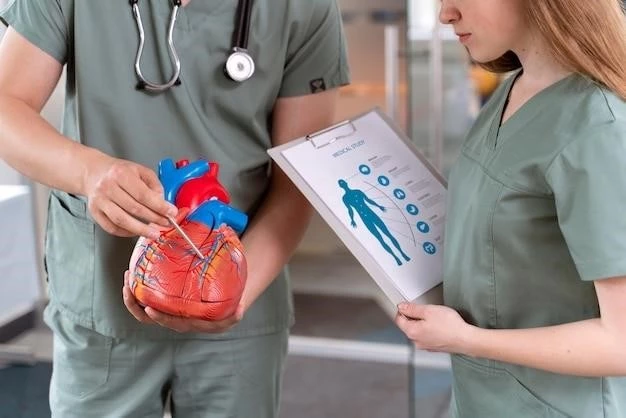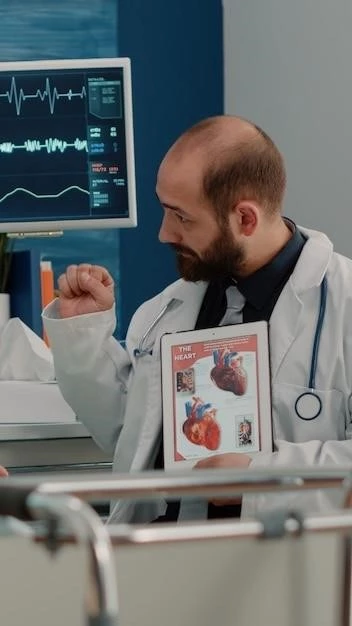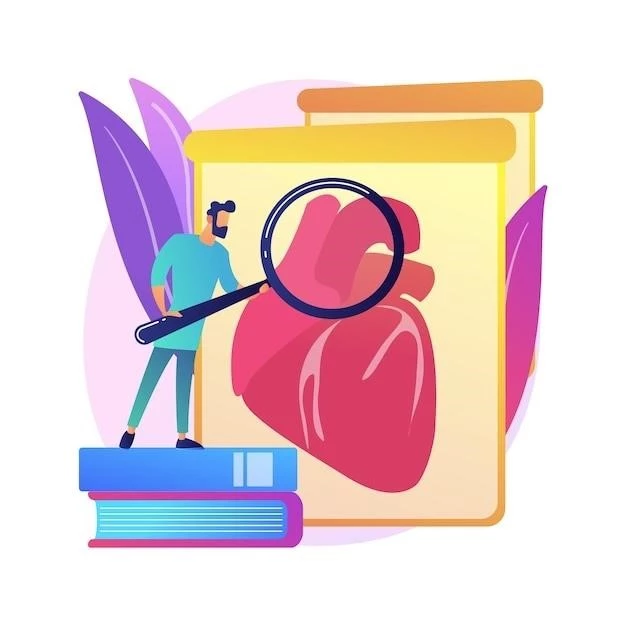Introduction
The term single ventricle is used to describe congenital heart defects with one functioning ventricle, such as double-inlet left ventricle (DILV) and common ventricle. These defects are a subset of congenital heart disease (CHD) and require specialized care and management strategies.
Definition of Single Ventricle Heart
A single ventricle heart defect refers to a congenital heart abnormality where the heart has only one functional pumping chamber, known as a ventricle, instead of the usual two. This condition can manifest in various ways, such as hypoplastic left heart syndrome or tricuspid atresia, resulting in challenges with blood circulation and oxygenation. Patients with this defect often require specialized medical attention and interventions to manage their condition effectively.

Incidence and Prevalence
Congenital heart disease affects approximately 9.1 per 1000 live births, with single ventricle defects constituting about one-fifth of these cases. The incidence of single ventricle physiology is significant, highlighting the need for specialized care and management strategies for individuals with these conditions.
Single ventricle defects, including rare conditions like hypoplastic left heart syndrome and tricuspid atresia, account for approximately one-fifth of congenital heart disease cases, emphasizing the significance of these complex cardiac anomalies among affected individuals.
Frequency of Single Ventricle Defects in Congenital Heart Disease
Single ventricle defects account for approximately one-fifth of congenital heart disease cases, making them a significant presence within the spectrum of cardiac anomalies present at birth.
Clinical Presentation
The symptoms and signs of single ventricle heart defects vary but can include cyanosis (blueness of the skin), rapid breathing, poor feeding, and failure to thrive. Additionally, affected individuals may exhibit signs of heart failure, such as edema and fatigue. Early diagnosis and management are crucial in addressing the clinical manifestations associated with single ventricle heart defects.
Symptoms and Signs of Single Ventricle Heart Defect
Signs and symptoms of a single ventricle heart defect may include blueness of the skin (cyanosis), rapid breathing, poor feeding, failure to thrive, edema, fatigue, and signs of heart failure. Early detection and prompt medical intervention are vital for individuals with these symptoms.
Diagnosis
Diagnosing single ventricle heart defects typically involves a combination of methods such as fetal echocardiography, which can identify abnormalities before birth, and postnatal echocardiograms to confirm the diagnosis. Additional diagnostic tools may include cardiac MRI, cardiac catheterization, and genetic testing to understand the specific nature and severity of the defect.
Treatment Options
Managing single ventricle defects requires highly specialized care starting before birth and throughout life. A multidisciplinary team of experts, including pediatric and adult heart surgeons, cardiologists, anesthesiologists, and others, work together to provide the best possible care for individuals with these complex cardiac anomalies.
Methods Used to Diagnose Single Ventricle Heart Defect
The diagnosis of single ventricle heart defects typically involves a comprehensive evaluation, including fetal echocardiography during pregnancy to identify structural abnormalities. After birth, echocardiograms and imaging techniques such as cardiac MRI and cardiac catheterization are essential for confirming the diagnosis and assessing the specific characteristics of the defect.
Specialized Care
Individuals with single ventricle heart defects require lifelong specialized care that begins before birth. This care involves a multidisciplinary team of medical professionals, including pediatric and adult heart surgeons, cardiologists, anesthesiologists, and other specialists, to ensure optimal management and treatment of these complex cardiac conditions.
Importance of Specialized Care for Single Ventricle Defects
Specialized care is crucial for individuals with single ventricle defects due to the complex nature of these cardiac anomalies. Coordinated efforts from a diverse team of medical professionals are essential to ensure tailored treatment plans, ongoing monitoring, and timely interventions that optimize outcomes and enhance the quality of life for patients with these challenging conditions.
Complications
Potential complications associated with single ventricle heart defects can include heart failure, arrhythmias, growth and developmental delays, and increased risk of infections. These complex cardiac anomalies require comprehensive management to address and minimize the risks of associated complications.
Potential Complications Associated with Single Ventricle Heart Defect
Individuals with single ventricle heart defects may experience complications such as heart failure, arrhythmias, growth and developmental delays, and an increased susceptibility to infections. Managing these potential complications effectively requires comprehensive and specialized care to improve outcomes and enhance the quality of life for affected individuals.
Research and Advances
Recent research and advances in the treatment of single ventricle heart defects have focused on improving surgical techniques, enhancing postoperative care, and exploring potential genetic factors contributing to these complex anomalies. Ongoing studies aim to optimize outcomes and quality of life for individuals living with single ventricle defects through innovative approaches and multidisciplinary collaboration in the field of pediatric cardiology.
Current Research and Advances in the Treatment of Single Ventricle Defects
Ongoing research in the treatment of single ventricle heart defects focuses on improving surgical procedures, optimizing postoperative care, and investigating potential genetic influences on these complex conditions. Advanced techniques, personalized approaches, and interdisciplinary collaboration in pediatric cardiology aim to enhance outcomes and quality of life for individuals affected by single ventricle anomalies.

Support and Resources
Support and resources for individuals with single ventricular heart defects play a crucial role in providing comprehensive care and assistance throughout their journey. Various organizations, pediatric hospitals, and support groups offer valuable information, guidance, and emotional support to individuals and families affected by these complex cardiac conditions.
Available Support and Resources for Individuals with Single Ventricle Heart Defect
Individuals with single ventricle heart defects can access a variety of support and resources provided by organizations, pediatric hospitals, and support groups. These resources offer valuable information, guidance, emotional support, and connections with others facing similar challenges, fostering a supportive community for individuals and families navigating the complexities of single ventricle heart defects.
